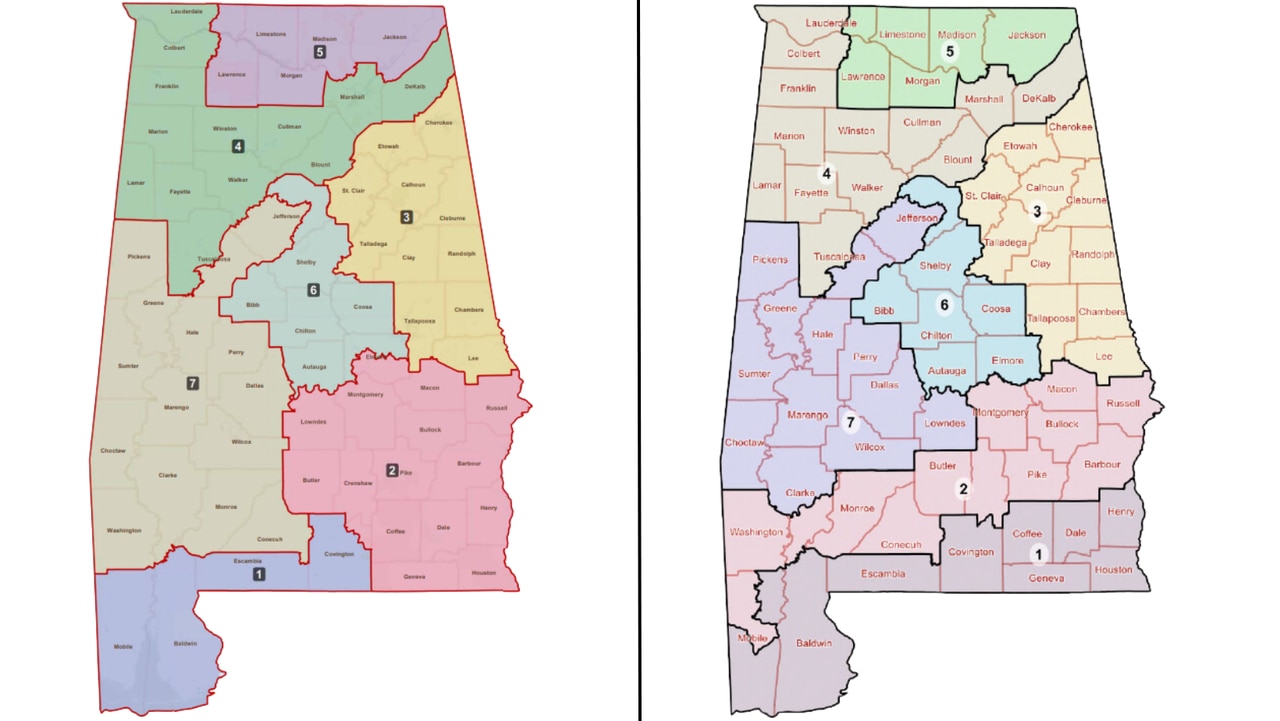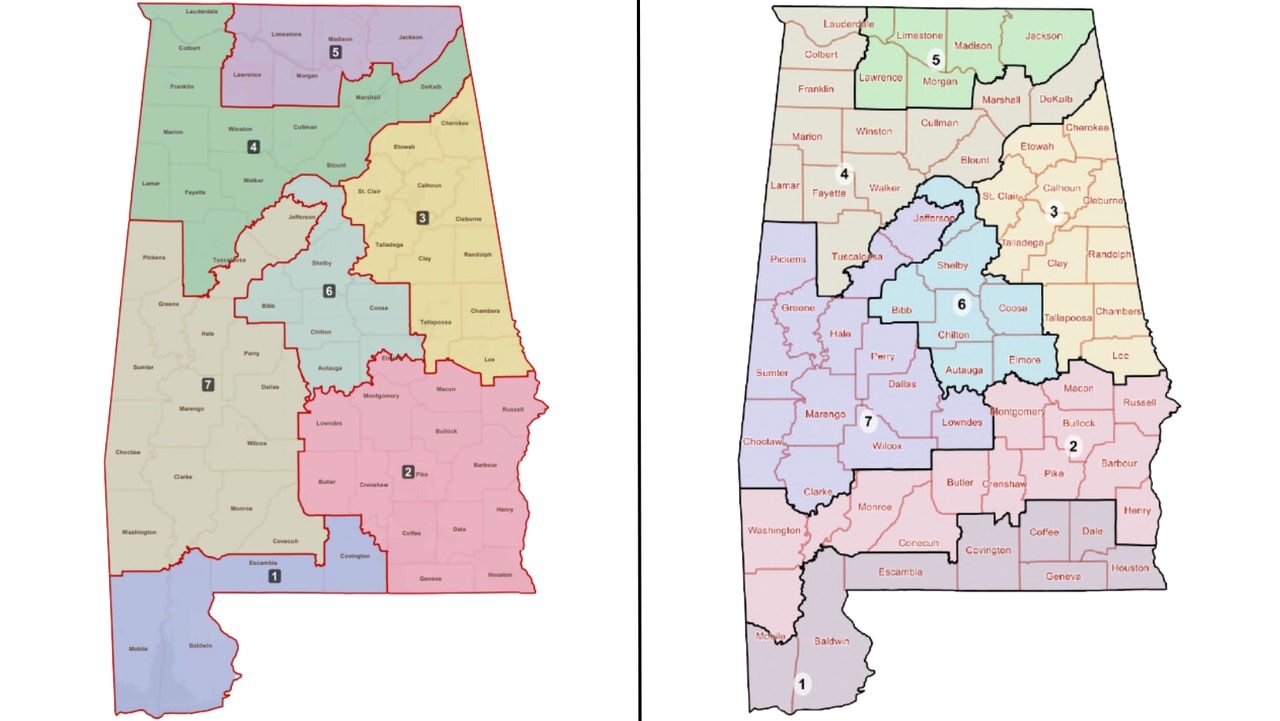What happens next with Alabama congressional districts?
Alabama is on a path to elect its members of Congress next year with a map approved by a three-judge federal court, as opposed to the state Legislature.
That’s where the two-year-old case stands after the U.S. Supreme Court on Tuesday turned down Alabama’s request for an emergency stay on the three-judge court’s preliminary injunction that blocks the state from using the the Legislature’s map. The judges ruled the map did not fix the dilution of Black voters that they said was a likely violation of Section 2 of the Voting Rights Act.
Alabama Attorney General Steve Marshall said the state will continue to defend the map approved by the Republican-controlled Legislature. That map did not add a second district with a Black majority or close to a Black majority, as instructed by the court in an earlier ruling affirmed by the U.S. Supreme Court in June.
Marshall and Solicitor General Edmund LaCour say the Legislature’s map came as close as possible to doing that without racial gerrymandering and violating other redistricting principals.
But, for now at least, it appears their next chance to present a full defense of that map will come after next year’s elections, which begin with the primary set for March 5.
Circuit Judge Stanley Marcus and District Judges Anna Manasco and Terry Moorer are following a schedule they spelled out in orders throughout the summer, a plan that started by giving the Legislature a chance to fix the map, which the judges say did not happen.
“This manner of proceeding is consistent with the Defendants’ request that the Court conduct remedial proceedings at this time and delay any final trial on the merits of the Section Two violation until after the 2024 election,” the judges wrote in an August 1 scheduling order.
What happens next?
The court is accepting objections to the three remedial maps proposed by Special Master Richard Allen.
Allen submitted those maps on Monday, as directed by the court. All three would raise the Black voting age population in District 2 from 40% on the Legislature’s map to about 50%, making it a second opportunity district for Black voters.
The court gave parties in the case, as well as others, three days to file their written objections to the special master’s maps.
The congressional map passed by the Republican-controlled Legislature, left, and Remedial Plan 2 proposed this week by the federal court’s special master. The special master’s three proposed plans all extend District 1 across the width of the state and raise the Black voting age population in District 2 to about 50%, making it the second opportunity district for Black voters, along with District 7.

The congressional map passed by the Republican-controlled Legislature, left, and Remedial Plan 3 proposed this week by the federal court’s special master. The special master’s three proposed plans all extend District 1 across the width of the state and raise the Black voting age population in District 2 to about 50%, making it the second opportunity district for Black voters, along with District 7.
Next week, the judges will hold a hearing. They have scheduled that for Tuesday at 9 a.m. at the Hugo L. Black United States Courthouse in Birmingham.
The court has not given a date when it will approve a map. But the court’s handling of the case so far indicates a decision will be early next month.
The judges sought guidance from Secretary of State Wes Allen on when a new map needs to be in place to conduct the elections. Allen said by early October, and the judges have mentioned that repeatedly in their orders.
“We are acutely aware of the exigent nature of these proceedings,” the judges wrote in the Aug. 1 scheduling order.
This week’s developments — the special master’s proposed maps and the Supreme Court’s decision not to intervene — set the stage for potential candidates to express interest and speculation about who else might be on the ballot.
Who could be running in the open Alabama Congressional District 2 race?
State Sen. Singleton ‘looking forward to making a run’ for District 7 seat held by Sewell
The Alabama case has national implications. Federal lawsuits over state and congressional districts are pending in Georgia, Louisiana, and Texas, the Associated Press reported. The outcomes in Alabama and those states could help determine who controls Congress. Republicans held a narrow 222-213 majority to begin the 118th Congress.
